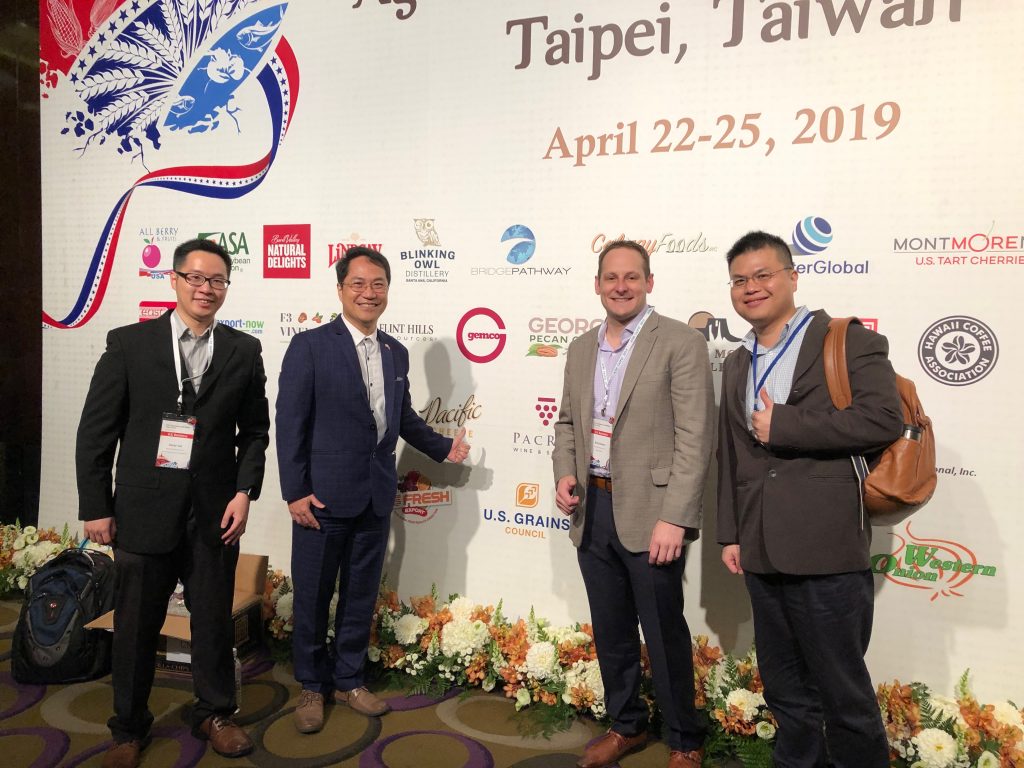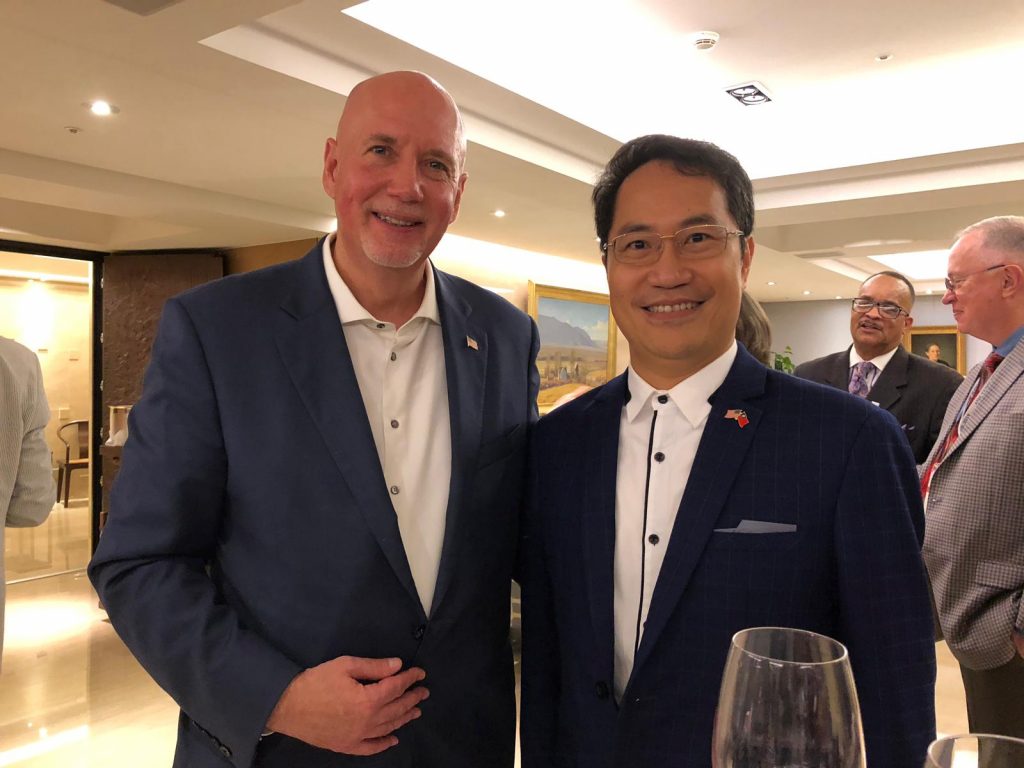Thanks to more than 45 years of partnership, Taiwan is consistently a top-five importer of U.S. agricultural and related products, particularly for U.S. coarse grains and co-products.
But more potential exists in this long-standing and reliable market, which is why U.S. Grains Council (USGC) members and staff participated in a recent trade mission to engage targeted Taiwan customers, connect them with U.S. suppliers to capture additional demand for products like U.S. dried distiller’s grains with solubles (DDGS) and encourage increased ethanol use.
Two USGC members, both sellers of U.S. corn and DDGS, joined nearly 50 other U.S. agribusinesses and farm organizations on the U.S. Department of Agriculture’s (USDA) first-ever trade mission to Taiwan, conducted April 22 to 25. USDA Foreign Agricultural Service (FAS) Administrator Ken Isley led the mission that focused on targeted business-to-business meetings and in-depth briefings on market opportunities.
“Taiwan and the United States have a long-standing and favorable business relationship,” Isley said. “Taiwan is an import-dependent economy and has a real affinity for U.S. ag products because of their quality, affordability and safety. What that adds up to is excellent opportunities for American exporters.”
The Council established an office in Taiwan in 1973, focusing on technical programs that help feed millers and livestock and poultry producers manage their operations efficiently and use U.S. feed grains effectively. Taiwan imports nearly all of its local feed demand, primarily for swine and poultry, and Taiwan has remained a steady buyer of U.S. coarse grains and co-products to meet those needs.
Taiwan regularly ranks in the top 10 U.S. corn importers and the United States maintains 75 percent market share. Thus far in the marketing year (September 2018-February 2019), Taiwan has purchased 1.1 million metric tons (43.3 million bushels), more than triple the same time period last marketing year.
Taiwan is also a significant market for U.S. DDGS and the United States accounts for 95 percent of the DDGS imported by almost all large feed mills in Taiwan. The Council promotes U.S. DDGS in Taiwan through direct interactions with buyers and provides information on the nutrition, quality and application of DDGS to feed mill technicians, hog producers and poultry producers.Taiwan has purchased nearly 112,000 tons so far in 2018/2019.
USGC Taiwan Director Michael Lu had individual meetings with the two DDGS suppliers, both USGC members, on the trade mission as well as a government official from Nebraska to update them on the Taiwan market and the Council’s program. The Council also invited the top five U.S. corn and DDGS importers in Taiwan to meet with the USGC members.
“These customers import roughly 30 percent of total Taiwanese corn imports and represent half of overall DDGS demand in Taiwan,” Lu said. “The U.S. DDGS suppliers appreciated the Council’s arrangement to connect with these important customers.”
Taiwan is considered a mature market, meaning the United States maintains a large share of the market, but the Council is continuing to grow the market through working with U.S. agribusinesses to supply consistent product quality, educate Taiwan end-users on how to increase inclusion rates of DDGS and exploring opportunities to promote value-added products like high protein DDGS or increase price competitiveness.
New demand potential also exists in Taiwan for ethanol. During the trade mission, Lu talked to Isley one-on-one about the Council’s ethanol promotion program, which focuses on educating Taiwanese policy makers about ethanol’s advantages to air quality, for increasing bioenergy supplies and in meeting the country’s commitments to reducing greenhouse gas emissions. Additional meetings between U.S. and Taiwanese government officials took place during the trade mission to further discuss ethanol use in Taiwan.
“The Council has a long history in Taiwan and has worked in virtually every area of policy, trade, demand building and marketing,” Lu said. “We continue to provide our trading partners with updated results of research projects and quality and the needed information and technology to help increase exports of U.S. coarse grains and co-products.”
About The U.S. Grains Council
The U.S. Grains Council develops export markets for U.S. barley, corn, sorghum and related products including distiller’s dried grains with solubles (DDGS) and ethanol. With full-time presence in 28 locations, the Council operates programs in more than 50 countries and the European Union. The Council believes exports are vital to global economic development and to U.S. agriculture’s profitability. Detailed information about the Council and its programs is online at www.grains.org.


